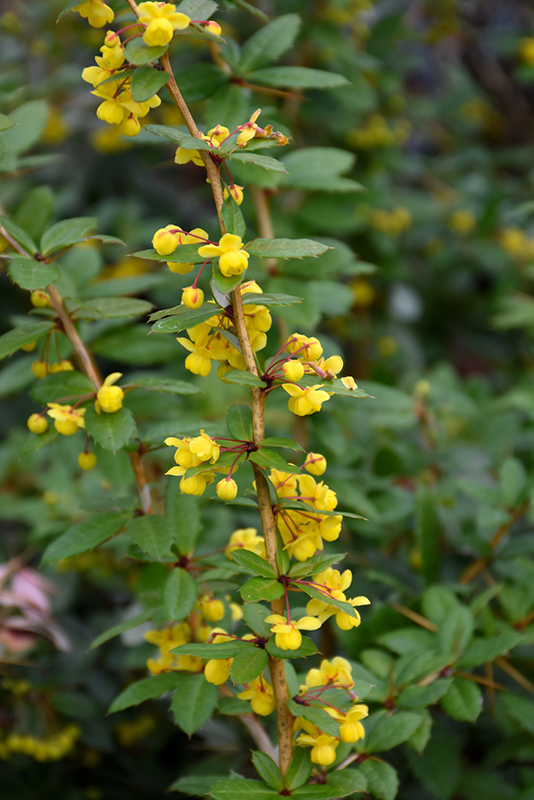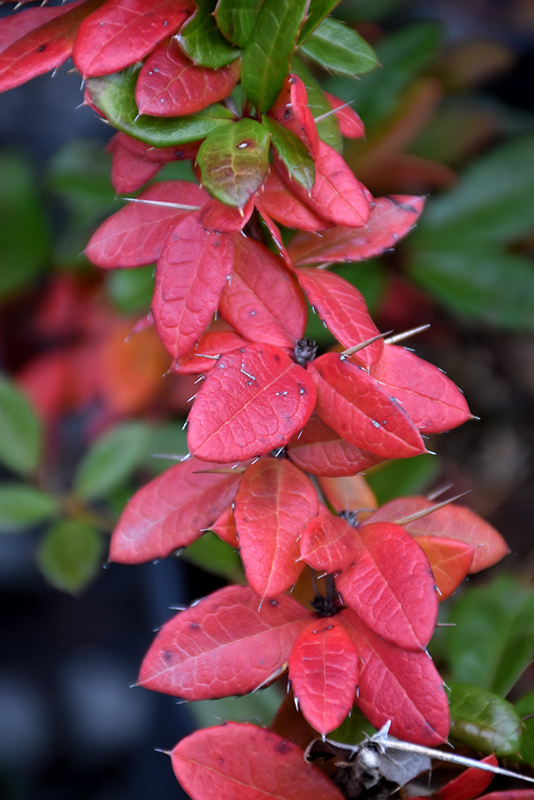William Penn Barberry
Berberis x gladwynensis 'William Penn'
Height: 4 feet
Spread: 5 feet
Sunlight:
![]()
![]()
Hardiness Zone: 4b
Description:
An upright spreading shrub with rich green lustrous foliage all summer long, turning to an elegant copper in fall; very showy, great as a color contrast in the landscape; plant on slopes, in beds, as border
Ornamental Features
William Penn Barberry has attractive dark green deciduous foliage which emerges chartreuse in spring on a plant with an upright spreading habit of growth. The glossy oval leaves are highly ornamental and turn an outstanding coppery-bronze in the fall. It features showy clusters of yellow flowers hanging below the branches in mid spring.
Landscape Attributes
William Penn Barberry is a dense multi-stemmed deciduous shrub with an upright spreading habit of growth. Its relatively fine texture sets it apart from other landscape plants with less refined foliage.
This shrub will require occasional maintenance and upkeep, and can be pruned at anytime. Deer don't particularly care for this plant and will usually leave it alone in favor of tastier treats. Gardeners should be aware of the following characteristic(s) that may warrant special consideration;
- Spiny
William Penn Barberry is recommended for the following landscape applications;
- Mass Planting
- Hedges/Screening
- General Garden Use
Planting & Growing
William Penn Barberry will grow to be about 4 feet tall at maturity, with a spread of 5 feet. It tends to fill out right to the ground and therefore doesn't necessarily require facer plants in front. It grows at a medium rate, and under ideal conditions can be expected to live for approximately 20 years.
This shrub does best in full sun to partial shade. It is very adaptable to both dry and moist growing conditions, but will not tolerate any standing water. It is not particular as to soil type or pH, and is able to handle environmental salt. It is highly tolerant of urban pollution and will even thrive in inner city environments. This particular variety is an interspecific hybrid.


